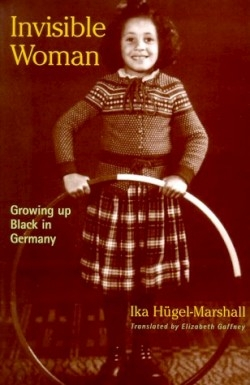Invisible Woman
Growing Up Black in Germany
Had Charles Dickens lived at the same time as Eldridge Cleaver, the pair’s expositions of child abuse and racism might have rocked the world. Instead, Hügel-Marshall’s searing account of growing up in 1950s Germany, the daughter of a German teenager and an African-American soldier, fulfills their legacy. Born in 1947, Ika is removed from her family when she is seven—allegedly to protect her from a “hostile” world—and spends the next eleven years in an orphanage run by the Catholic church. There, she endures unimaginable misery. She is taunted for her “smell,” called “niglet” and “chocolate-covered piglet,” and is beaten and made to eat her own vomit. The nuns even force her to undergo an exorcism, telling her that it is the only way to extricate the devil lodged in her soul.
Hügel-Marshall’s memoir is brutally descriptive in detailing the overt and covert ways she is taught misogyny and self-hatred. Indeed, racism and sexism vividly intertwine as she exposes her country’s cultural biases. It is grim, but intensely potent.
Still, it is the power of kindness, the occasional expression of familial love, and the quiet but clear praise of one teacher that allows Hügel-Marshall even a modicum of hope. Tenacious and proud, smart and sassy, as a young adult she becomes a social worker. A job in a group home for unwanted kids allows her to re-visit institutional life. There, she crafts programs that build self-esteem and self-respect among residents. Along the way, both she and they undergo a transformation, beginning the arduous process of healing from the indignities heaped upon them. An encounter with her father, when she is forty-six and he is seventy-five, further aids the curative process. Similarly, deep friendships with African-American writers Audre Lorde and Gloria Joseph, and interactions with the burgeoning Afro-German political movement, help her understand the oppression and torment she experienced as she came of age.
Invisible Woman is a celebration of human resilience and an indictment of ignorant social policies and religious brutality.
Reviewed by
Eleanor J. Bader
Disclosure: This article is not an endorsement, but a review. The publisher of this book provided free copies of the book to have their book reviewed by a professional reviewer. No fee was paid by the publisher for this review. Foreword Reviews only recommends books that we love. Foreword Magazine, Inc. is disclosing this in accordance with the Federal Trade Commission’s 16 CFR, Part 255.

